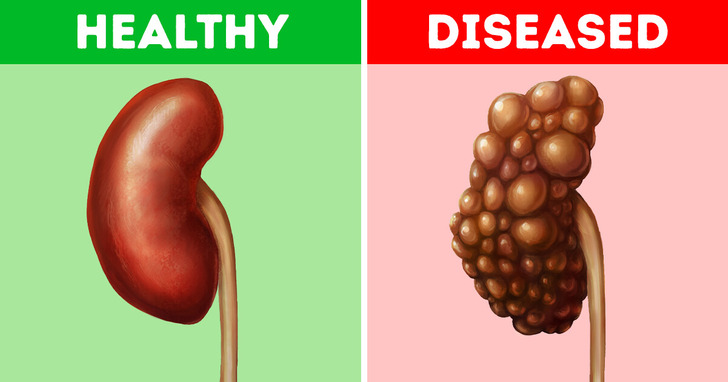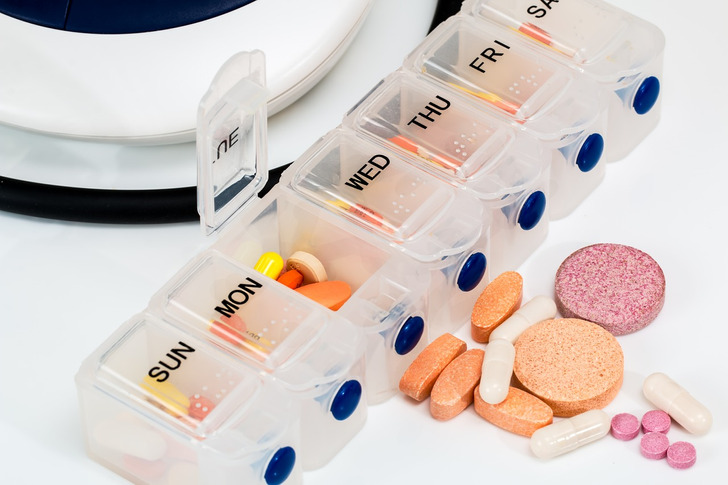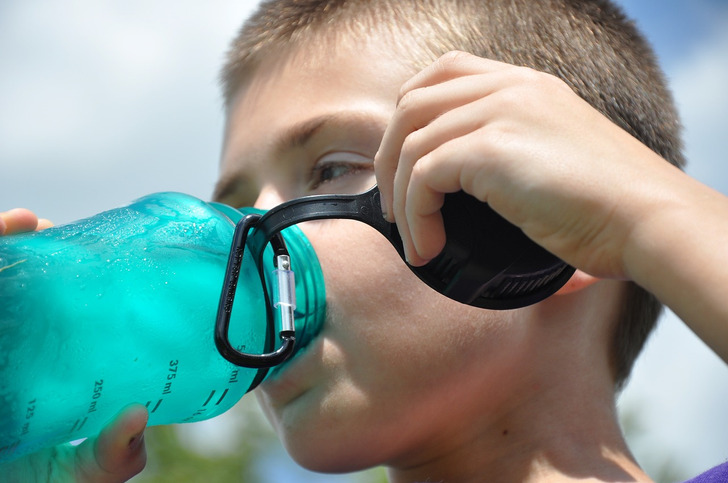Hi all,
I have few issues around my health and requires guidance. I often get jaundice and could not sleep properly I have left shoulder pain and I sweat alot mainly on my forehead. Please suggest me what should I do to keep my health at par.
Thanks
10 Common Habits That Can Damage Your Kidneys
Kidneys play a crucial role in keeping your body healthy — they help produce red blood cells, regulate blood pressure, detoxify your internal organs, eliminate excess water, and control the levels of all essential minerals contained in your blood. That’s why it’s really important to reduce your risk of getting kidney disease by breaking certain bad habits and replacing them with good ones.
10. Holding your pee
Not emptying your bladder on time is one of the main causes of kidney problems. If you often resist the urge to pee, the urine remains in your bladder for a longer period, and bacteria begin multiplying much faster. Eventually, this can lead to kidney issues.
9. Chronic sitting
Regular physical activity is often associated with improved blood pressure and normal glucose metabolism that are both important factors in maintaining kidney health. Sitting for long periods of time without moving may increase your risk of kidney disease by 30%.
If you spend more than 8 hours a day in your chair at work, try to lead an active lifestyle at home — exercise at least 2-3 times a week and don’t miss a chance to walk around the neighborhood.
8. Overtraining
Working out too hard for too long can cause rhabdomyolysis, a condition when your muscles get injured and the content of the dead fibers flows right into your bloodstream. This can lead to health complications.
So if you have significantly increased your training and you have both muscle pain and dark-colored urine, you should see your doctor as soon as possible.
7. Overusing painkillers
Although anti-inflammatory drugs like aspirin or ibuprofen are safe in moderation, regular overuse of them can result in kidney damage and even total kidney failure. This may happen because over-the-counter analgesics decrease the blood flow to your kidneys and worsen their functioning, especially if you already have kidney disease.
So even if you suffer from severe pain, don’t forget that painkillers should only be taken for a short period of time and at the lowest dose possible.
6. Not drinking enough water
Staying hydrated helps your kidneys produce urine to remove sodium and toxins from your body. If you don’t drink enough water on a regular basis, it may cause health problems, including painful kidney stones.
For most people, 1.5-2 liters of water a day is enough to keep their kidneys healthy. And don’t forget that other drinks won’t do, it’s only pure water that counts.
How can you know that you’re drinking exactly what you need? Your pee should be light yellow, any darker color might be a possible sign of kidney damage.
5. Missing out on sleep
It turns out that a good night’s rest is extremely important not only for your overall well-being, but for your kidney health as well. Your sleep/wake cycles regulate and coordinate your kidney function, and this organ’s tissues are renewed only when you’re sleeping. So if you don’t get enough sleep, you interrupt this process and increase your risk of kidney damage.
Improper sleep can also cause atherosclerosis, or the hardening and clogging of your arteries. This condition could lead to high blood pressure that can overload your kidneys and cause kidney failure over time.
4. Drinking diet soda
According to health experts, there’s a close connection between diet soda consumption and kidney problems. In 2009, a study showed that over 3,000 women who drank 2 or more sodas every day had a significant decline in kidney function. Unlike artificially-sweetened drinks, sugar-sweetened ones didn’t produce the same effect.
3. Eating a lot of meat
Overconsumption of animal protein creates a lot of acid in your blood that can cause acidosis, a condition when your kidneys can’t keep your body’s pH in balance. With time, this disorder may cause severe digestive issues and chronic kidney problems.
The recommended daily intake of protein is about 1-1.6 grams per kilogram of body weight. So, instead of eating too much meat, try to consume more fruits and vegetables and include different types of protein like eggs, fish, beans, and nuts into your diet.
2. Consuming too much salt and sugar
95% of the sodium consumed with foods is metabolized by your kidneys. So if you eat too many salty products, your organs have to work much harder in order to get rid of the excess sodium. Eventually, this may result in the reduced function of your kidneys and lead to retention of water in your body that, in turn, can increase your blood pressure.
The excessive consumption of sugar may also contribute to the development of high blood pressure, as well as, lead to obesity and increase the risk of diabetes. These are the leading causes of kidney failure.
The recommended intake of salt is about 3.75 grams (or 0.75 tsp) a day, for sugar it’s about 25-38 grams (or 6-9 tsp). To keep your kidneys healthy, pay attention to the ingredients when buying goods at a supermarket — processed and packaged foods are usually high in both sodium and sugar.
1. Ignoring common infections

When you have a common illness like a cough, a cold, the flu, or tonsillitis, your body makes proteins called antibodies to fight it. These molecules usually settle in the filtering parts of your kidneys and cause inflammation. So if the illness lasts for a long time, your kidneys could be damaged.
To protect your kidneys, always treat bacterial infections properly — take a break from work, sleep enough, and use antibiotics if necessary.
Do you have any of these habits? Would it be hard for you to get rid of them? Share your opinions with us in the comments!
Comments
In the case of kidney failure, Renal profile test (Kidney function Blood test) helps to understand how often to give dialysis, and monitor treatment.
https://bit.ly/34rl7SD
Related Reads
15+ People Who Won’t Forget How Lady Luck Smiled at Them

I Refused to Be Humiliated Just Because I’m Poor

10 People Who Unveiled a Family Mystery That Redefined Reality

14 People Who Have Scratched the Word "Shame" Out of Their Dictionary

I Installed a Secret Camera After My MIL Insisted on Having Our Key

10 Sudden Realizations That Made People Pause and Reflect

12 Real Stories So Messed Up They Feel Like Fiction

Your Life Before and After Marriage, in Pictures

12 Times Family Secrets Turned Out to Be Shocking Plot Twists

"Embarrassingly Desperate," At 57, Nicole Kidman's Most Recent Appearance Is Raising Eyebrows

16 Strangers Who Walked Into Someone’s Day and Made It Anything but Ordinary

11 Real Stories of People Who Gave Up Everything for Love



